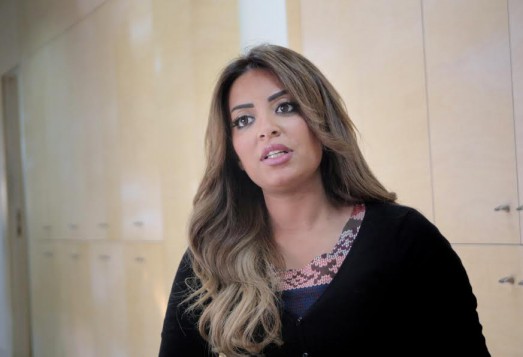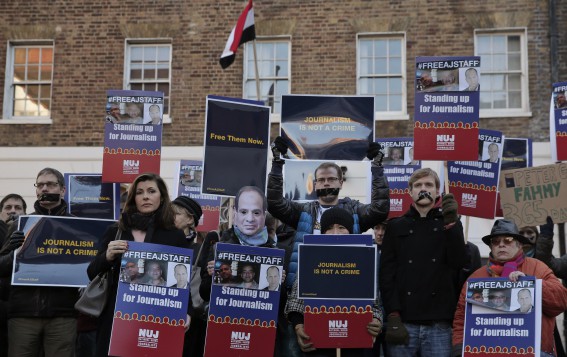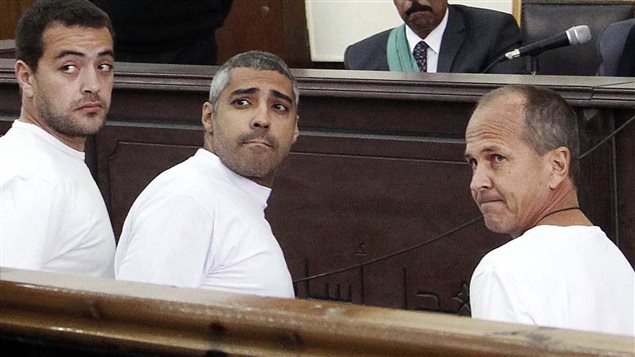It has been a year to the day since three Al Jazeera journalists were arrested in Cairo and imprisoned on charges that they conspired with the now-banned Muslim Brotherhood.

Marwa Omara, the fiancée of Al-Jazeera English journalist Egyptian-Canadian Mohammed Fahmy, speaks during an interview with The Associated Press in Cairo, Egypt, Monday, Dec. 29, 2014. (AP Photo/Amr Nabil)
For Mohamed Fahmy, the Canadian-Egyptian who headed the network’s English-language local bureau, the ordeal has been both physically and psychologically taxing, his fiancée told CBC earlier this month.
In an interview with the Associated Press Monday, Marwa Omara added it has also been tough on his family.
His fate shrouded in uncertainty, he “is a pawn in a cold war between Egypt and Qatar”, said Omara.
Caught in the crossfire
Fahmy, Australian Peter Greste and Egyptian producer Baher Mohammed were among dozens of other journalists rounded up by the military as part of a crackdown on Islamists following President Mohammed Morsi’s ouster and the Muslim Brotherhood’s fall from power.
But their case has stood out as an illustration of the bitter political rift between the two Middle Eastern countries. Until recently, Qatar openly supported the Brotherhood and served as a safe haven for some of its top members.
Although Qatari-owned Al Ja zeera’s English-language news service maintained editorial independence, the Arabic-language news service was sympathetic to the Islamic group and considered by the Egypt to be its mouthpiece. The network became a prime target in the military-backed government’s wide-ranging campaign to silence perceived critics and the ‘Al Jazeera 3’, as they are known, were caught in the crossfire.
At the conclusion of a trial denounced as a sham by rights groups, Fahmy and Greste were sentenced in June to seven years in prison. Mohammed got an additional three years because he had a spent shell casing in his possession when he was arrested, a souvenir he had picked up during protests.

Demonstrators, some with black tape over their mouths to illustrate the silencing of free speech and journalists, hold up placards as they demonstrate across the street from the Egyptian Embassy to mark a year since the detention of Al-Jazeera English journalists in Egypt, central London, Monday, Dec. 29, 2014. (AP Photo/Lefteris Pitarakis)
Détente, hope
Qatar has taken steps in recent months to ease tensions with Egypt, including by shutting down a controversial pro-Islamist TV channel, Mubasher Misr, last week.
The potential warming of relations between the two rivals could lead to deportation for Fahmy and Greste, or retrial or pardon for the three men.
For now, nothing is certain.
Fahmy has called on Prime Minister Stephen Harper to intervene personally in his case, by asking Egypt’s president to release him. But that will not happen. Instead, Canadian Foreign Affairs Minister John Baird, who has been engaged in back-room diplomatic efforts, confirmed he will be in Cairo next month to step up pressure.
Meanwhile, Egypt’s Court of Cassation begins hearing the journalists’ appeal on Thursday, Jan. 1, 2015.







For reasons beyond our control, and for an undetermined period of time, our comment section is now closed. However, our social networks remain open to your contributions.